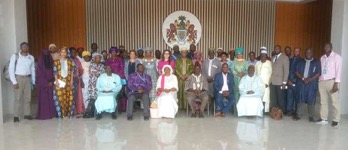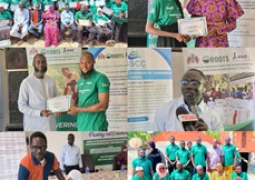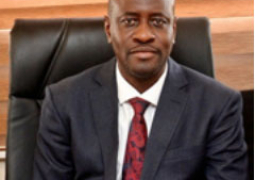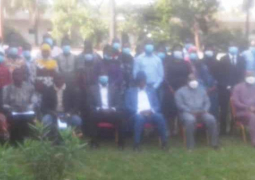
The forum was designed to confirm the operationalisation of PROREFISH Gambia and to raise awareness on the project’s objectives and outcomes.
The six-year project will be co-executed by FAO, Ministries of Agriculture and Fisheries, Water Resources and National Assembly Matters. The project is financed by the Green Climate Fund (GCF).
The project seeks to conserve and protect fisheries resources and their habitats considering the impacts of climate change through sustainable mitigation and adaption measures thereby enhancing climate resilience of fishing communities.
At the forum, Dr. Mustapha Ceesay, FAO Assistant Country Representative, said the project would also help to address climate change impacts so as to enhance resilience of the people particularly the vulnerable grass roots population.
Dr. Ceesay reminded that uncertainties of climate change hazards would not spare food systems and the natural resources sector dependent economies.
However, he added that the Gambia is committed to safeguarding the socio-economic importance of livelihoods that depend on the fisheries and aquaculture sector.
Also speaking, Fanta Bojang-Samateh, permanent secretary at the Ministry of Fisheries, Water Resources and National Assembly Matters, said fisheries contribute about 12% of the country’s GDP and provides directly or indirectly employment for over 300, 000 people.
The fisheries sector, she said therefore has the potential to make sustainable contribution to the socio-economic development of the Gambia.
“Fisheries contribute to economic generation, food security and nutrition especially in rural areas. It also creates opportunities for foreign exchange earnings to regional and international fish trade.” she added.
She also raised the alarming threat to the sector such as degradation of the food web by irresponsible human activities and climate change.
PS Bojang-Samateh however, expressed her ministry’s commitment to the rational and sustainable exploitation of fisheries resources.
Deputysing for the UN resident coordinator in The Gambia, Abdoulie Badjie, said fisheries and aquaculture provide food for billions of people around the world and play an important role in the local economies of coastal communities in many countries.
Yet, he observed that marine and aquatic ecosystems are under stress as a result of climate change, overfishing and other unsustainable fishing practices and pollution from various other human activities.
“At a time when food insecurity is a growing concern, ensuring the sustainable use of the oceans’ resources is vital. Yet, even as we speak, the consumption of fish is growing at twice the rate of global population growth, an alarming reality that is not adequately reflected in our policies and priorities on food and nutrition security.” he added.




